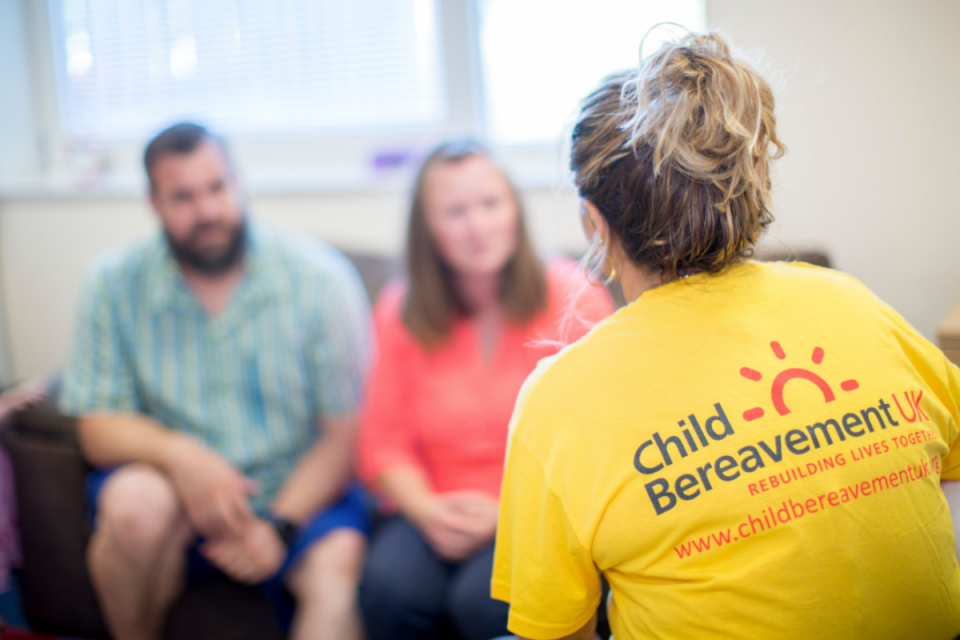Midwives and maternity care workers will often be involved in the care of parents who have previously experienced the loss of a baby or child. In this article the Child Bereavement UK charity explain the challenges parents may face and describe the support they provide to parents and those who care for them.
______________________________________________
Expecting a new baby when a baby has died can be emotionally challenging. However, with support and the opportunity to remember their baby, families we help at Child Bereavement UK tell us they can enjoy their new baby while continuing to remember their baby who has died, making them an important and meaningful part of their family story.
Families often feel guilty about being excited about expecting a new baby, fearing they are somehow being disloyal to their baby who has died. A father whose daughter was stillborn at 30 weeks told us: “Almost as soon as we got excited and started looking forward, we felt guilty: Should we be doing this? Should we be feeling like this?”
Once their baby is born, parents often realise that their capacity to love is not finite, and it is possible to love their new baby while also remembering their baby who has died with both love and sadness. We encourage parents to recognise that this is a different pregnancy with a different child, that both children are important to them, and that their love for them is equal.
For many parents, although they may be looking forward to the arrival of their new baby, there may be times when the pregnancy is a difficult reminder of what they have lost. Some parents we have supported tell us they were worried about the gender of the baby, with some hoping for a baby of the same gender and some for a different gender; choosing to find this out at a scan can therefore be particularly emotional. At Child Bereavement UK we suggest parents discuss these concerns with a bereavement support practitioner or health professional.
There may be times during pregnancy where parents may need to visit places that remind them of their baby who has died, such as an antenatal class or appointment. Some parents find it helpful and comforting to be in a familiar environment with staff they know but others may prefer to go to a completely different hospital with fewer reminders, if this is an option.
We suggest to bereaved parents that they ask professionals to help them by sharing what is difficult for them and asking what options are available, requesting that these are written on their notes so that other staff can be aware. This can be difficult for families at an emotionally fraught time so it can be helpful if professionals who are aware of the family’s history can anticipate these questions and provide support.
After their baby is born, parents may have new concerns. They may worry that bonding with their new child will be affected by their fear for their baby’s wellbeing and their grief for their child who has died. Some say they can feel detached from the pregnancy and that this is a way of protecting themselves; others worry that bonding means it will seem like they are forgetting their baby who has died.
Our guidance to parents is to not put pressure on themselves but to allow their relationship with their new baby to develop naturally. No two children are the same and it is OK to have a different but just as precious relationship with each one.
While the arrival of a new baby may be a time of joy, it can also be a time when parents revisit their grief, feeling a deep sense that their other child is missing. For some there may be a sense of feeling ‘complete’ and of gratitude that their baby is safe. As part of supporting bereaved parents at Child Bereavement UK, we help them to understand that it is OK to experience both these feelings and to move between them.
For health professionals, the impact of witnessing death, dying and grief in the workplace cannot be underestimated. Grief is a normal reaction to death, and it is natural for it to affect you as a professional. Looking after your own health and wellbeing is critical to the quality of care you are able to provide for families. Share your feelings with someone you trust and seek help if you feel overwhelmed. Child Bereavement UK’s Helpline is available to any professional who needs support and guidance, or who simply needs to talk to someone. Call 0800 02 888 40 or email: helpline@childbereavementuk.org.
For more information on our training for professionals and to view our films and resources visit: www.childbereavementuk.org
Child Bereavement UK
June 2023


